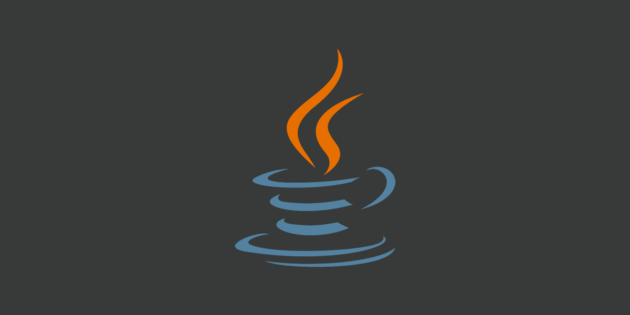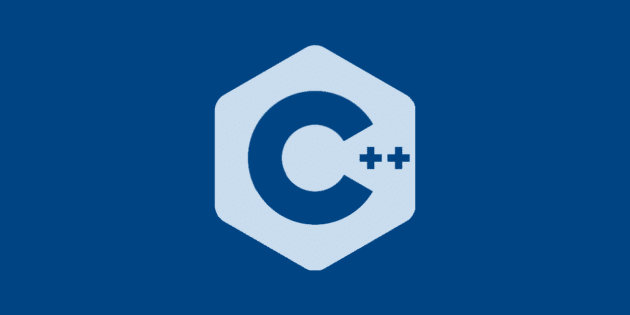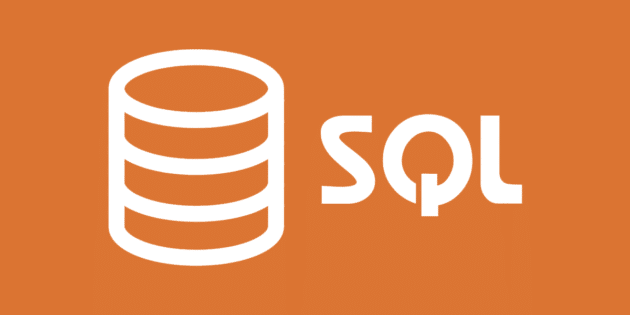Step into the shoes of a digital defender and discover which programming language is best for staving off evil cyber forces. You’ll need to be armed with the right tools, like any superhero. But don’t worry. There are plenty of options available! Sharpen your skillset by selecting from an array of robust programming languages for cybersecurity that can help protect our online world against malicious hackers.
Are you a tech innovator looking to seize the countless opportunities in cybersecurity? Or an experienced programmer interested in mastering cutting-edge security techniques with the right language of code? Whatever your background, selecting the perfect programming language is key. It’s essential for safeguarding systems and guaranteeing that your work remains sound and secure – taking your career to unprecedented heights!
It’s essential to choose the right programming language for any cybersecurity project. Depending on which tasks need accomplishing, some languages are better suited than others. Such as web applications more effectively written with secure code using a specific language or networks benefitting from programs designed in other tongues. Evaluating your goals and objectives allows you to create optimized security solutions tailored to serve the unique needs of each situation.
When it comes to cybersecurity, the right programming languages can make all the difference. With easy-to-learn and use features, as well as a range of robust security measures that are compatible with existing systems, you’re sure to get ahead in this exciting field. Finding the perfect language means setting yourself up for success now while ensuring your ability to stay on top of rapidly evolving technologies down the road – making important strides toward achieving career growth and ascendancy!
Well, buckle up folks! We are about to dive deep into the world of code and discover the programming language that will turn you into a cybercrime-fighting machine.
What is a programming language?

Programming languages are the creative and powerful tools used by developers to create software applications. By following a set of rules, these computational dialects can transform user input into various types of output – ranging from website interfaces to sophisticated algorithms that automate tasks.
Programmable machines equipped with specific instructions make it possible for us to use programming language capabilities in even more distinct ways – enabling computers across the world to do amazing things!
The first commercial computer, the Ferranti Mark I, contained 4000 valves and developers programmed it using punched cards. Early electronic computers were programmed in assembly languages, which are essentially abbreviations for machine code that allow a programmer to write code using fewer characters and symbols. Use an assembler to convert assembly language into machine code before it can be run on a computer.
High-level programming languages are powerful tools that make it easier for humans to communicate instructions clearly and logically with computers. By providing an intermediary language between humans and machines, they break down the communication barrier by allowing users access to more complex concepts without needing extensive knowledge of assembly code.
Some examples of such languages include FORTRAN, COBOL, LISP, C++, and Java. All requiring translation into executable machine instruction using a compiler before execution on a computer system is possible.
Recommended for you: 10 Most Popular Programming Languages to Learn.
Best programming languages for cybersecurity

Picking the right coding language for your cybersecurity system is a crucial decision to make. While there may not necessarily be one “best” option, engineers often turn to certain languages that are more popularly used in this field – making sure they fulfill their specific requirements when it comes down to protecting and defending against cyber threats.
Cybersecurity requires a robust understanding of programming languages. But with three major contenders – Python, Java, and C++ – it can be difficult to choose the best.
Each language has its own strengths. For example, Python is renowned for its readability while java provides excellent platform independence. On the other hand, there are also tradeoffs such as potential memory problems associated with C++ coding compared to python’s more user-friendly syntax. The right choice depends on specific project needs so consider carefully before settling on one option!
1. Python

Python is a powerful and intuitive language, that allows developers to bring their ideas to life. Its user-friendly syntax makes it an excellent choice for entry-level coders looking to take the plunge into cybersecurity projects. With immense flexibility and industry-leading modules at its disposal, creative minds can create anything from websites or games to mobile applications with ease using this great programming tool.
Pros and cons of Python
- Pros: Python is one of the most popular programming languages, boasting a vast community of developers and providing quick access to helpful libraries. Its intuitive syntax makes it easy to pick up for those just getting started with coding, while its powerful features allow experienced coders to operate at top speed!
- Cons: Python is a versatile language that provides unique capabilities for developers. Yet the interpreted nature of python can lead to slower performance compared with compiled languages such as C++ and its weak type checking may introduce debugging challenges. Taking these drawbacks into account helps ensure you select the best programming language for your needs.
2. Java

Java is a highly reliable and secure programming language that makes it easy for developers to build innovative applications. With comprehensive features and tools, you can create robust programs while ensuring peak performance. Whether you are getting started in development or have been around the block, Java offers something unique as an ideal platform for building software solutions.
It’s more challenging than Python yet still provides engineers with versatile capabilities perfect for web development projects and coding apps alike!
Pros and cons of Java
- Pros: Java offers the best of both worlds – rapid development speed and strong security. Its platform independence lets you manage complex applications easily, with a library of prebuilt code at your disposal. This combination makes it an obvious choice for secure programming in today’s digital age!
- Cons: Java may be a mighty coding language. But it does have some drawbacks. While its interpreted nature allows for high levels of flexibility and portability, this same trait can lead to slower running times in comparison with other languages. Additionally, technical limitations hinder certain activities from being achievable or able to reach their full potential when utilizing Java.
3. C++

C++ is an incredibly versatile and powerful language that offers experienced developers a great amount of control over their projects. With it, you can create efficient applications with high levels of complexity – perfect for dynamic, interactive experiences! Whether it’s used to develop system-level programs or intricate games, this creative programming language provides plenty of flexibility when designing your project.
Although not recommended for novice coders due to its difficulty level – seasoned professionals have the opportunity to craft some truly remarkable things using C++.
With the constantly evolving cybersecurity landscape, staying ahead of potential attacks requires a commitment to learning. Broaden your expertise with different programming languages and stay on top of current trends – it’s one sure way to ensure you’re well-equipped for successful cyber protection.
Pros and cons of C++
- Pros: C++ is a programming language known for its efficiency and versatility. It allows developers to maintain maximum control over their code, with good performance thanks to the compile-time environment – making it perfect for time-sensitive applications such as real-time security monitoring. In addition, due to its portability characteristics and adaptable nature across various platforms and architectures, it’s an ideal choice for modern application development requirements.
- Cons: Although C++ can unlock powerful programming capabilities, it is not without its pitfalls. With a complex set of rules and an unforgiving error-handling system, learning C++ requires dedication and lots of practice!
You may like: Best Programming Language for iOS App Development.
4. SQL

SQL is an invaluable asset for anyone, regardless of experience level. It’s a versatile language that allows you to easily create, manipulate, and query data stored in your database. With its power comes great potential; banks use it to store customer information while retail uses it to keep track of stock levels – the possibilities are endless! Investigate this incredible tool today and unlock previously unimagined insights into all kinds of data sets!
In the world of cybersecurity, SQL is a true masterpiece. It provides us with an unparalleled level of access to data, helping prevent malicious attacks while allowing for a thorough investigation into any potential incidents. Its methodical approach ensures accuracy and reliability in uncovering key patterns across vast datasets – something that otherwise would remain hidden or difficult to track down.
Whether fending off threats or mapping out occurrences post-attack, SQL acts as our trusted guide; leading us through each step till a resolution is reached safely & securely.
Pros and cons of SQL
- Pros: The power of SQL allows cybersecurity professionals to dive deep into data sets, revealing potential security weaknesses or odd behavior. It gives organizations the ability to quickly gain insight into their environment and ensure that any detected issues are dealt with in a timely fashion – keeping them safe from malicious attacks and other threats.
- Cons: As one of the most widely-used database languages, SQL has revolutionized data storage and retrieval. However, it is not without its risks – particularly when it comes to cybersecurity. SQL injection attacks are a common form of malicious attack used by cybercriminals that allows them to unlock sensitive information hidden in databases unless proper security controls are implemented quickly. Cybersecurity professionals must stay vigilant against this type of threat if they want to keep their organizations secure from harm!
5. Ruby

Ruby delivers the perfect balance between intuitive programming and powerful capabilities. This general-purpose, object-oriented language takes readability to a whole new level – making it an ideal choice for programmers of all levels.
If you want your project ideas to become reality fast, look no further than Ruby. Its comprehensive library guarantees that virtually any type of software can be built quickly and easily! From web applications to games or just about anything else your heart desires; when creativity is at stake: go with Ruby…you won’t regret it!
Ruby is a potent protector, armed with the power of automation through its expressive syntax. Web development becomes an art form as every script creates intricate security measures – like flawless fortifications around our digital dwellings. The Metasploit framework resonates in tune too. Together they are virtuosic defenders against any malicious activity online!
A tech utopia, the Ruby community strives to create a secure digital universe powered by collaboration and open sharing. As welcoming as it is accessible – supporting both novice fans of coding and experienced professionals alike. This ever-evolving arena provides an open-source haven for learning, growth, and success.
Pros and cons of Ruby
- Pros: Developers of all skill levels are turning to Ruby for its powerful capabilities and ease of use. This advanced programming language is instrumental in automating many IT tasks, such as those related to cybersecurity. This is making it a top choice among professionals seeking solutions that quickly deliver reliable results. Additionally, with an extensive online community providing support and resources at their fingertips. Leveraging the power of Ruby has never been easier.
- Cons: With its unique features and capabilities, Ruby can be a great tool for web development. However, the language’s low usage rate compared to other programming languages means that finding experienced developers may prove challenging. Furthermore, as it is not specialized in lower-level system tasks such as cybersecurity applications – this could potentially hinder how much use you get out of integration with these systems.
Best practices for using any of the programming languages in cybersecurity

When it comes to picking the right programming language for cybersecurity tasks, there’s no one-size fits all solution. Finding the best pick relies on understanding each language’s strengths and weaknesses in accordance with specific goals, constraints, and requirements of a given task at hand. Knowing these general principles is key when taking advantage of popular programming language capabilities within this dynamic field.
Python is the perfect choice for experimentation and prototyping, given its readability. It provides an extensive library of ready-to-use tools to take on a variety of tasks with great versatility. Though it may not be best suited for time-critical operations due to having a slower processing speed than other languages, developers benefit from this language’s diversity when building innovative solutions.
Java is the go-to language for many applications, especially those in cybersecurity. With its speed and reliability, as well as a vast community of experienced developers to turn to for help or advice, it’s no wonder why! Although complexity may make this language daunting at first glance – experienced coders value how much can be achieved with it; making Java an invaluable asset in any programmer’s portfolio.
For speedy, high-powered performance and a vast array of libraries for secure application development, C++ is an excellent option. However, to reap these rewards requires commitment. The language can be challenging to learn even for highly experienced coders. So, those starting out or working on smaller projects should consider their other options first.
You may also like: Using API (Application Programming Interface) in Affiliate Marketing.
Conclusion

Understanding the right one from all programming languages for a given cybersecurity task can be daunting. However, there are several options that boast specific strengths and abilities to tackle any challenge.
Python comes with powerful scripting capabilities. Java is known for its renowned versatility on both mobile and desktop platforms. C/C++’s power for system-level tasks. SQL is an exceptional database management tool. All the way up to Ruby’s robust feature set of coding features tailored towards web development. Whatever your need might be in tackling cyber threats, one of these languages will have you covered!
For effective cybersecurity, staying on top of the latest programming languages is essential. These powerful tools and frameworks provide immense flexibility in creating secure solutions for any organization. From customizing systems to data analysis or automating information security processes. Knowing these languages gives you the freedom to choose which fits best for each unique task. This can be an invaluable asset when it comes to safeguarding against cyber threats!





